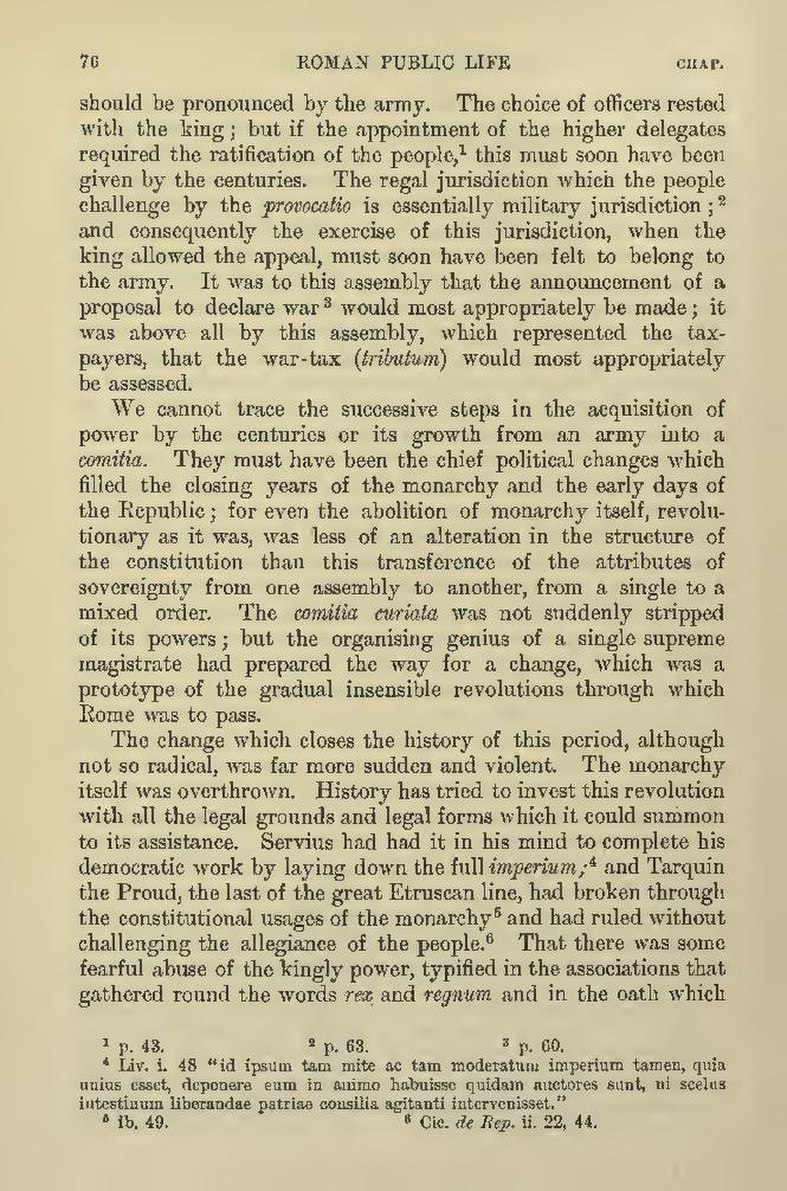should be pronounced by the army. The choice of officers rested with the king; but if the appointment of the higher delegates required the ratification of the people,[1] this must soon have been given by the centuries. The regal jurisdiction which the people challenge by the provocatio is essentially military jurisdiction;[2] and consequently the exercise of this jurisdiction, when the king allowed the appeal, must soon have been felt to belong to the army. It was to this assembly that the announcement of a proposal to declare war[3] would most appropriately be made; it was above all by this assembly, which represented the taxpayers, that the war-tax (tributum) would most appropriately be assessed.
We cannot trace the successive steps in the acquisition of power by the centuries or its growth from an army into a comitia. They must have been the chief political changes which filled the closing years of the monarchy and the early days of the Republic; for even the abolition of monarchy itself, revolutionary as it was, was less of an alteration in the structure of the constitution than this transference of the attributes of sovereignty from one assembly to another, from a single to a mixed order. The comitia curiata was not suddenly stripped of its powers; but the organising genius of a single supreme magistrate had prepared the way for a change, which was a prototype of the gradual insensible revolutions through which Rome was to pass.
The change which closes the history of this period, although not so radical, was far more sudden and violent. The monarchy itself was overthrown. History has tried to invest this revolution with all the legal grounds and legal forms which it could summon to its assistance. Servius had had it in his mind to complete his democratic work by laying down the full imperium;[4] and Tarquin the Proud, the last of the great Etruscan line, had broken through the constitutional usages of the monarchy[5] and had ruled without challenging the allegiance of the people.[6] That there was some fearful abuse of the kingly power, typified in the associations that gathered round the words rex and regnum and in the oath which
